Check SASSA Care Dependency Grant Status 2024 Right Now
If you are a parent (biological/foster) of a permanently or severely disabled child, then you must check SASSA Care Dependency Grant Status more often. Changes in the income streams and some other governmental factors affect the transaction of grants via bank accounts.
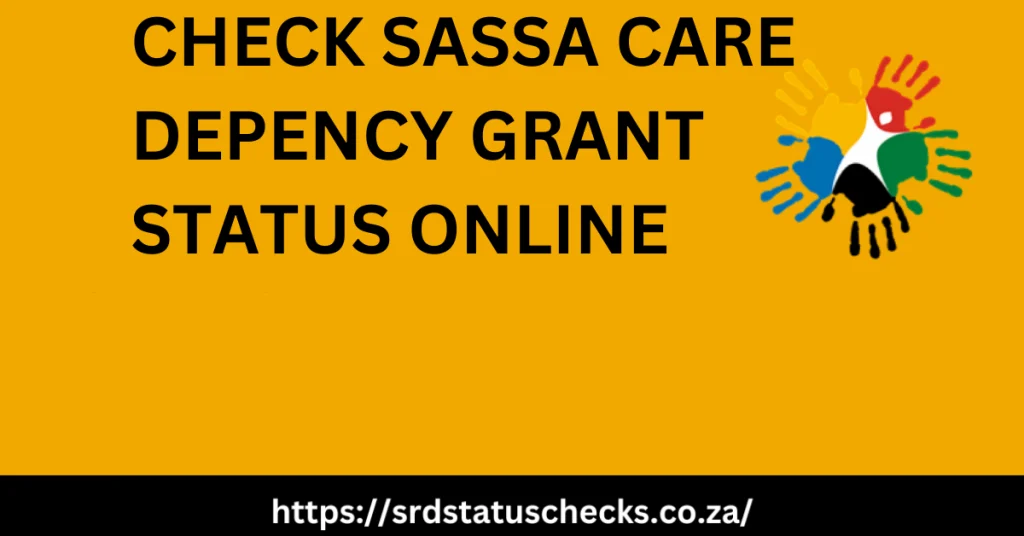
Therefore, one must frequently check the exact situation of the grants and the release date. Often, for granting the important announcements may result in the rejection of grants. Consequently, an eligible applicant may face several checks and a chaotic verification process. You may now add basic account details and Check the SASSA care dependency grant status. You may also check the eligibility for the approved grants and recent policy amendments.
Check SASSA Care Dependency Grant Status
The Care Dependency Grant is specifically allocated to caretakers and parents of a disabled person under the age of 18. The main aim of the grant is to help disabled and physically challenged people live peaceful lives. With the Care Dependency Grant, the South African Government has made an incentive to encourage people related to disabled people. The assistance provides financial support to the people taking continuous care of physically or mentally disabled children.
So, if you are concerned about the SASSA Care Dependency Grant and need quick updates, keep attached to our forum. You can use our platform to get updates and check the SASSA Care dependency grant status by following simple steps.
A dashboard will open with complete information on the status of the SASSA grant. You can also check the eligibility using the same process.
If you are a caregiver of disabled child and you need to apply for the grant, you can check your eligibility criteria below.
Eligibility Criteria for Care Dependency Grant
Here are the eligibility criteria for the Care Dependency Grant.
1. Citizenship and Residency
The applicant must be a South African citizen, permanent resident, or refugee.
Both the applicant and the child must be residents of South Africa.
2. Age of the Child
The child must be under the age of 18 years.
3. Medical/Assessment Report
The applicant must submit a medical/assessment report confirming a permanent and severe disability of the care-dependent child.
4. Means Test
The applicant and spouse must meet the requirements of the means test, except for foster parents.
5. Institutional Care
The care-dependent child/children must not be permanently cared for in a State Institution.
Above mentioned, criteria outline the key requirements for eligibility for the Care Dependency Grant in South Africa. Unlike other SASSA grants, you don’t have to provide the income evidence as a foster parent in a Care Dependency grant application.
Documents required for Care Dependency Grant
Applicants must produce the following original and certified copies of documents to the SASSA officials.
The SASSA officials will provide additional affidavits at the time of the interview or during the verification period.
SASSA Care Dependency Grant Payment Dates
Following are the upcoming paydays for the release of SASSA Care Dependenct Garnt. You must check the SASSA grant status before payment dates. To avoid inconvenience and payment failure issues, keep your data updated and accurate.
How to Check SASSA Old Age Grant Status
Here is a quick video guide that helps you navigate the SASSA Disability grant payment schedule check
Available Payment Methods for SASSA Disability Grant
Once the SASSA care dependency grant is approved, then one must be vigilant about the payment status and Bank account details. Basically, there are 3 Payment methods for the SASSA disability grant.
In case the beneficiary is unable to receive the payment personally, then they can nominate someone on his behalf. The documents and verification are done at the allotted SASSA centers.
SASSA Disability Grant Amount
Receiving the Disability Grant not only provides financial support but also plays a crucial role in enhancing the social inclusion and well-being of disabled individuals. It is designed to alleviate some of the economic challenges faced by those with disabilities, contributing to a more equitable and supportive society.
Various factors, including the severity of the disability, determine the amount of the Disability Grant. Besides the impact it has on the individual’s ability to work and earn a living, it also determines the amount. The disability grant amount is R2090, but it depends on permanent and long-term ailments
SASSA Care Dependency Grant Balance Check
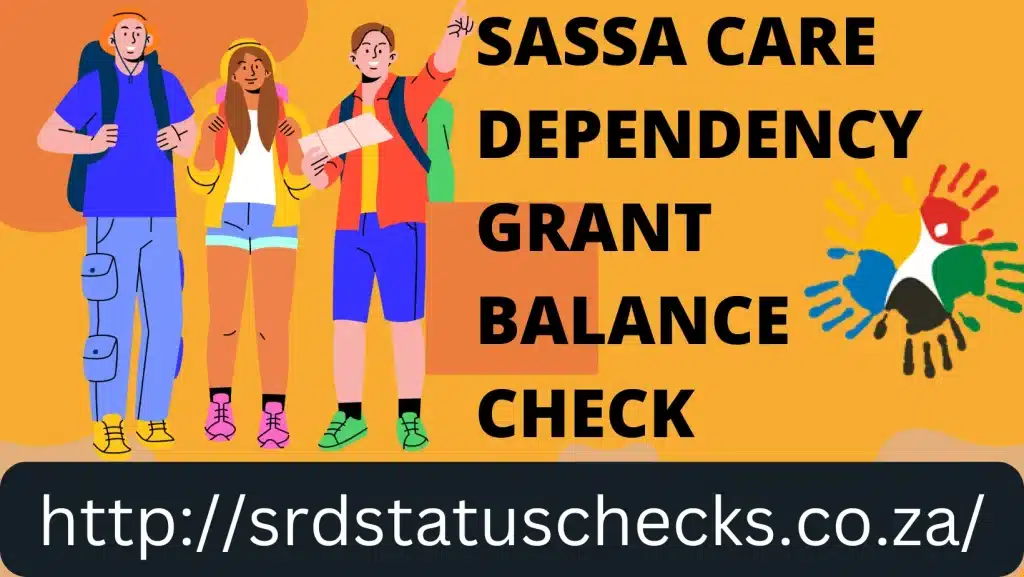
You can check your SASSA Care Dependency Grant balance checks. It helps you make informed decisions and pre-plan the budget with allocated grants. The payments are usually spent on medical assistance so you can check the status and plan your treatment plans.
Once approved, you will start receiving the payments via the selected method. To check the SASSA Care Dependency grant status, you can either use our site. You can also check it by following methods.
Disability Grant Suspended or Lapsed
When Disability Grant is Suspended or Lapsed, you won’t receive any payment. There might be different reasons which may halt the payment release.
Suspension of Care Dependency Grant
If you haven’t received payment on paydays, then there must be one of the following reasons.
If the Care Dependency Grant is suspended, it could be due to various reasons, such as changes in circumstances, failure to meet eligibility criteria or administrative issues.
Here are steps you can take to resolve the issue.
Contact SASSA
Reach out to the South African Social Security Agency (SASSA) as soon as possible. You can contact them through their official helpline or visit your local SASSA office.
you may like Contact SASSA.
Clarify Information
Ensure that all your information and documentation are accurate and up-to-date. If there have been changes in your circumstances, provide the necessary documentation to support these changes. This may include updated medical assessments or changes in residency status.
Review Means Test Requirements
If the suspension is related to the means test, review the financial requirements and provide any additional documentation required to meet these criteria. SASSA often assesses the financial means of both the applicant and their spouse in determining grant eligibility.
Appeal the Decision
If you believe that the suspension is unjust or based on incorrect information, you may have the option to appeal within 90 days of the decision. SASSA should provide information on the appeals process, including the documentation required and the timeline for submission.
Follow Up the SASSA Care Dependency Grant Status
After taking the necessary steps, follow up with SASSA regularly to check the status of your case. Persistence and clear communication can be essential in resolving any issues related to grant suspension.
Remember to stay informed about any updates or changes in the suspension status by keeping in contact with SASSA and complying with their requests for information and documentation. It’s important to address the issue promptly to minimize the impact on your financial situation.
Lapsing of Care Dependency Grant
The lapsing of a Care Dependency Grant refers to the discontinuation or cessation of the grant, typically due to various reasons. Consequently, it may render the recipient ineligible or non-compliant with the program requirements. Eventually, it can result in a temporary or permanent halt to the financial assistance provided by the grant, impacting the individual’s ability to meet the needs of a care-dependent child with a severe disability.
Possible Reasons for Lapsing
How to Resolve Quickly
Contact SASSA Immediately
Reach out to the South African Social Security Agency (SASSA) as soon as you become aware of the lapsing.
Provide Updated Information
Submit any required updated documentation, such as medical assessments or proof of changes in circumstances.
Appeal the Decision
If you believe the lapsing is unjust, inquire about the appeals process and provide any necessary information to support your case.
Regular Follow-ups
Stay in regular contact with SASSA to monitor the progress of your case and ensure a swift resolution.
Addressing the lapsing of a Care Dependency Grant promptly can avoid prolonged financial hardship and secure the necessary support for the care-dependent child. It involves effective communication with SASSA and the submission of accurate and updated documentation to meet the program’s eligibility criteria.
Note: The SASSA financial assistance program has zero tolerance for fraudulent and inaccurate information submissions. Therefore, immediate lapse and suspension of grants prevent the beneficiaries from receiving them.
Not Approved SASSA Disability Grant Application
Receiving a notification of a non-approved SASSA Disability Grant application can be disheartening. But it’s important to understand the reasons behind the decision and explore potential avenues for resolution.
Here’s a breakdown of what to consider.
Reasons for Non-Approval
Insufficient Documentation
The application might be rejected if essential documentation, such as medical assessments or proof of disability, is missing or incomplete.
Ineligibility
The applicant or the care-dependent child may need to meet the specific eligibility criteria set by SASSA.
Means Test
If the applicant’s financial situation is within the means test requirements, it could result in a non-approval.
How to Check SASSA Old Age Grant Status
Communication is Key. Stay informed, check for policy updates, and consult with SASSA representatives throughout the process. To avoid such issues, one must know the responsibilities as a beneficiary of a grant.
Responsibilities as a SASSA Beneficiary
As a recipient of SASSA grants, fulfilling certain responsibilities is necessary to ensure the efficient processing and continuity of your grants. The responsibilities center around timely and accurate communication with SASSA, particularly in cases of personal and financial changes or modifications in your child’s status. To avoid uncertain circumstances, one must be vigilant in the process.
Update Personal and Financial Information
Timely Communication on Address and Contact Details
Provide Accurate Information
Address Updates to Prevent Grant Suspension
Remaining proactive and transparent in your communication with SASSA is paramount. By fulfilling these responsibilities, beneficiaries contribute to the effectiveness and reliability of the grant system, ensuring continued support.
Means Test And Grant Reviews
The means test is a crucial component in determining eligibility for social grants provided by institutions like SASSA. This test assesses the financial means of the applicant and their household, helping to identify those in genuine need of assistance. Grant reviews are subsequently conducted periodically to ensure that beneficiaries still meet the necessary criteria. Here’s an overview:
Means Test
Financial Assessment:
The means test evaluates the income and assets of the applicant and their household. It considers factors such as employment income, property ownership, and other sources of financial support.
Determining Eligibility:
Applicants whose financial means fall below a certain threshold are deemed eligible for social grants. It ensures that the assistance is directed toward those who face economic challenges and require additional support.
Regular Updates:
Beneficiaries need to provide accurate and updated financial information to SASSA. Any significant changes in financial circumstances should be reported promptly to avoid issues during grant reviews.
Grant Reviews
Periodic Assessments:
Grant reviews are conducted periodically to reassess the eligibility of beneficiaries. This helps to identify any changes in circumstances that may affect the continued need for financial assistance.
Documentation Submission:
During reviews, beneficiaries may be required to submit updated documentation, including proof of income, residency status, and any other relevant details.
Ensuring Continued Eligibility:
Grant reviews are essential for ensuring that social assistance reaches those who genuinely require it. By regularly reassessing eligibility, the system can adapt to changing circumstances and allocate resources efficiently.
Conclusion
Always keep Checking on the Care Dependency Grant status to ensure a smooth and hassle-free grant release. Taking care of a disabled child is a huge responsibility and demands special care. As a parent, foster parent, or caregiver, the beneficiary receives a monthly stipend, which is for the welfare of the physically or mentally disabled child.
With the assistance of R 2090, which is expected to be raised in April 2024, the beneficiary can ensure a pristine living standard for the child. However, changes in the income streams and other factors impact the status of the grant. Therefore, check the Care Dependency Grant Status frequently and abide by the upcoming paydays.
FAQS

![Check SASSA Old Age Grant [2024] Status Online Right Now](https://srdstatuschecks.co.za/wp-content/uploads/2024/01/SASSA-OLD-AGE-GRANT-768x378.webp)
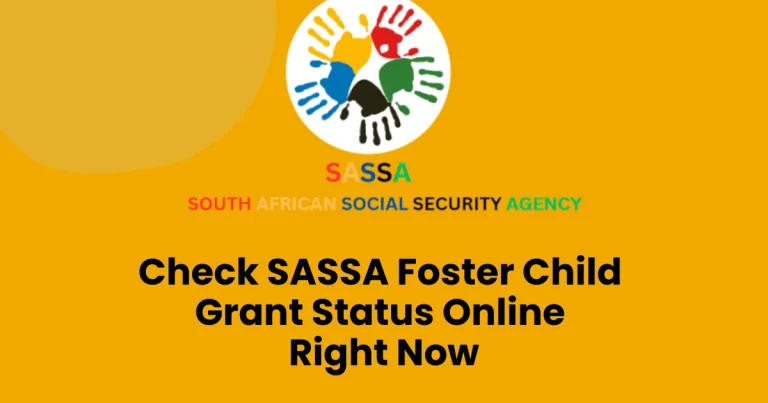
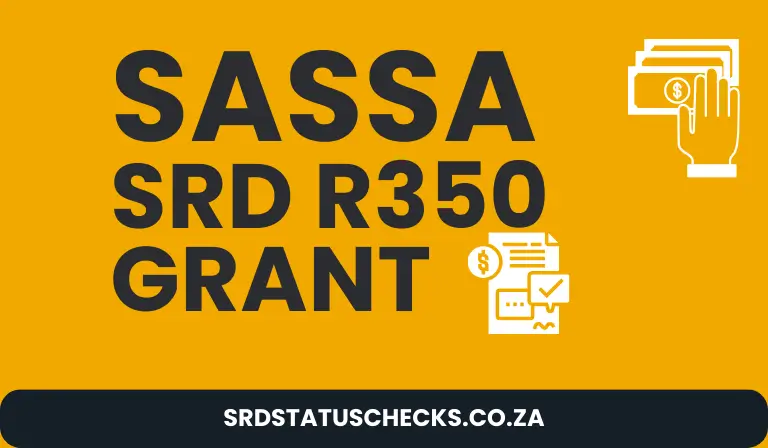
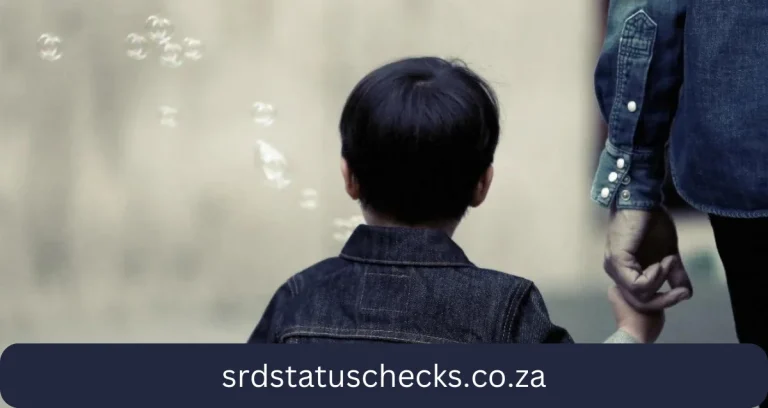
![Check SASSA War Veterans Grant [2024] Status Online](https://srdstatuschecks.co.za/wp-content/uploads/2024/01/SASSA-2-768x402.webp)
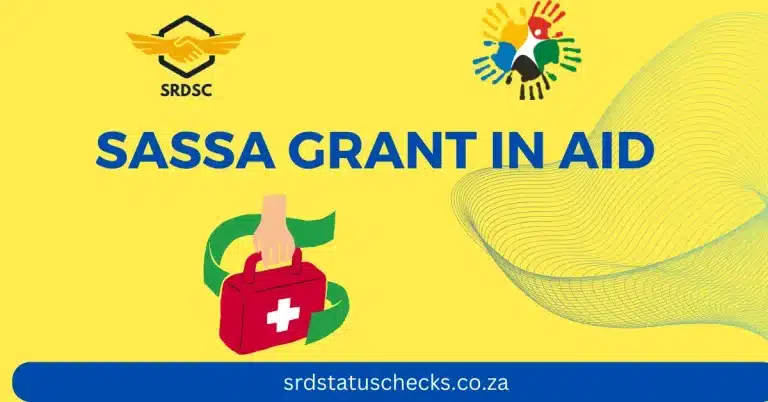
I want to change my bank details. Can i change it? and how can i change it please guide me
Please visit the home page